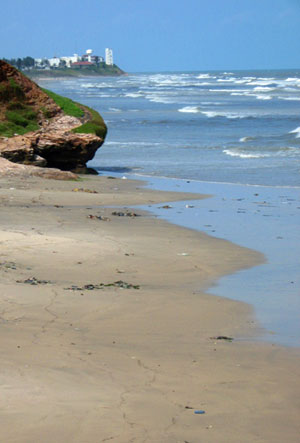Tourist Information
Frequently Asked Questions:

Q: Is it safe to travel in Ghana?
A: “Ghana is one of the friendliest and easiest countries to get around in West Africa. Its vibrant cultural identity, historical monuments and wonderful diversity of natural attractions make it a first stop for many travelers in the region.” – quotation from Lonely Planet guide.
Q: When I think of Africa first things that come to my mind are political turmoil’s and starvation.
A: Ghana is a very stable country politically. It’s an emerging African democracy with slowly growing economy. Starvation is not a problem in Ghana. It is a country rich in natural resources.
Q: Do I need vaccinations?
A: You need a Yellow Fever vaccination. There is no malaria vaccination yet. It’s important to avoid mosquito bites. Between 6:00pm and 6:00am (the only time when mosquito bite) use mosquito repellents and wear light colored clothing – long trousers and long sleeves. Our windows all have nets, you can add your own. At dry times however, mosquitoes are rare.. It’s also important to take preventive tablets like Fansidar, Malarone, mefloquine, or others. It’s recommended that you will start taking preventive tablets one week before the departure to Ghana. Malaria is preventable, treatable and curable.
Q: Do I need a medical insurance?
A: It’s a personal choice and if you want to feel absolutely safe, it is recommended that you obtain a medical and travel insurance. Ask your insurance agent for details.
Q: What’s the language in Ghana?
A: The official language is English. There are also several tribal languages such as Twi, Fanti, Ewe and Ga. While Twi is the language most heard, you can communicate in English practically everywhere in Ghana.
Q: I want to know more about the telecommunication system.
A: The best option is to bring your own cell phone and replace the SIM card. (Check with your provider for any restrictions.) SIM cards can be purchased locally for less than a dollar and are readily available. With this option, outgoing international calls are very reasonable and receiving calls is free. Cell phone reception is excellent in the cities and in most rural areas. You can also use one of the telecommunication centers, found everywhere.
Q: What’s the currency in Ghana?
A: Cedi (C/GhC You can change cash or travelers checks in the major banks and at the airport. Forex bureaus offers slightly better exchange rates than the banks but generally don’t change traveler’s checks. Most Forexes offer slightly better rate for larger notes like $50.00 and $100.00
Q: What’s the climate in Ghana?
A: Ghana has tropical equatorial climate, which means that is hot year round with seasonal rains. The main rain season is ar from April to June ; there are other rains especially during September and October. Most of the time expect temperatures in the 80s or 90s Fahrenheit (30s Celsius). The humidity in the coastal areas is high at about 80% and less in the drier north.
Q: When is the best time to go to Ghana?
A: Dry months are easier for traveling. But most months are dry! May and June are the only ones where you may see rain on a few days a month… and we often give discounts then anyway.
Q: What should I bring?
A: Pack lightly – as the first rule of easy traveling. Generally one light bag or backpack with a smaller day backpack is recommended. Except in May and June, bring only very light clothes mostly with short sleeves, shorts, light skirts, dresses and trousers. Mosquito repellent, sunscreen lotion, flip-flops or sandals, hats, medical kit, small flashlight, earplugs and towel are the basic essentials.